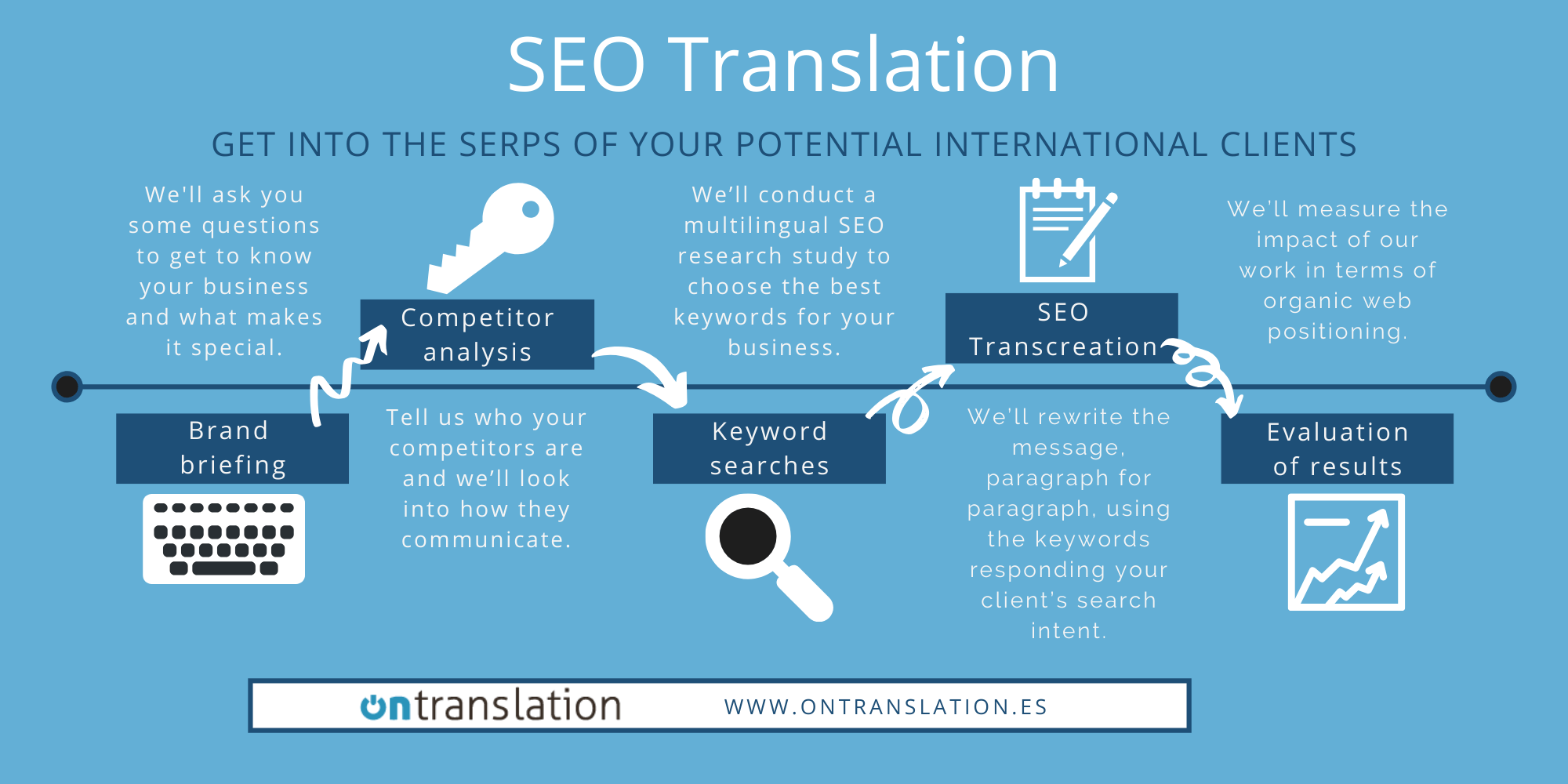Micro-copywriting and translation: the holy grail of small expressions
Combining micro-copywriting and translation will make your content stand out. More and more companies are becoming aware of how important… Read more >
A multilingual website is a must for globalisation, no doubt about it. Having your website in multiple languages increases your visibility in international markets. Of course, translating a website has its secrets, let’s not be fooled, and doing it poorly will have negative effects on your business.
We’ll share with you the most important aspects that cannot be overlooked when translating your website in multiple languages. Discover the several crucial points to consider in order to have a multilingual website. Let’s go!
In short: it’s a website that is translated into two or more languages. However, we must consider whether a page translated using Machine Translation could be considered a multilingual website. We don’t think so, because it will not be a website translated into multiple languages, but a website with versions of something that looks like certain languages.
Too many people still think that translating their website with machine translation they’ll be able to reach an international audience, but they’re wrong. An output as poor as the one you get from machine translation will easily make anyone who visits your website click the back button.
Who trusts strange wording, with spelling mistakes and inconsistencies? Unless your product is unique in the world, and irresistible on its own, the message counts.
Although there are many multilingual plugins for WordPress, we recommend installing WPML to make your WordPress site multilingual. It comes at a cost, of course. But quality software usually isn’t free, and this plugin is extremely effective. It enables you to quickly export texts in XLIFF and is compatible with the CAT (or computer assisted translation) tools used by translation professionals.
At Ontranslation, we are official language service providers of WPML. At the click of a button, you can send us all the content of your website to be translated. With another click, you can import the translations into your website in different languages. It’s that simple.
Often, we cannot translate our page to all the languages we would like. Professional translation comes at a cost!
Analyse your current and/or potential markets and decide which ones you want to target first. If you’re not clear, give us some information, and we can advise you and help you decide.
Ignite your globalisation: using results to make new translation decisions.
The Portuguese from Portugal isn’t the same as that of Brazil. Nor is it the same to target millennials as it is baby boomers, country people or city people… Although they all speak the same language, it’s likely they have different modes of expression.
Analyse who your buyer persona is and let us know. This way, you can adapt your message when developing a multilingual website to be effective with the sector of the population you are targeting.
Ultimately, we translate our website so that we can target and address more people. The translation can be done by considering SEO-friendly strategies, which will improve our positioning on Google.
This involves analysing work in which digital marketing and translation experts find the most appropriate keywords. They should respond to search intents of your audience and the languages into which you translate your website.

If we are found in other languages through Google, our chances of reaching more people are obviously much greater. Don’t take the easy option! SEO translation has a high ROI.
Remember to work with translation professionals and explain to them your target audience and target market.
Professional translation agencies will make your expression as effective as possible in connecting with your audience and also with search engines through SEO. Furthermore, if you are in need of attracting new clients to your landing page, you will need quality translation services.
Just sit back and enjoy having your business in multiple languages!
Translating your website can be very beneficial!
Combining micro-copywriting and translation will make your content stand out. More and more companies are becoming aware of how important… Read more >
Content management is much more than simply posting words on a website. It is a bridge that connects cultures, markets… Read more >
Thanks to the Internet, in today’s globalised world, translation services for import and export companies is essential. We buy and… Read more >